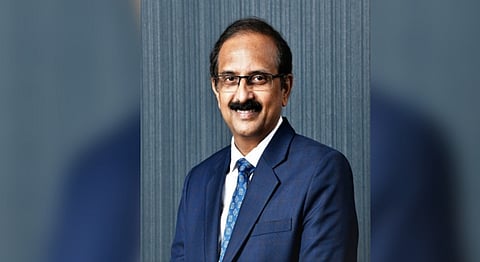

MUMBAI: Challa Sreenivasulu Setty, who took charge as chairman of SBI on Wednesday, faces many a challenge as his three-year term gets underway. First comes the task of maintaining asset quality, which is at a decadal best for the nation's largest bank, and making people come back to the counters to park their money. Setty also has the larger task of making SBI more profitable since his predecessor Dinesh Khara has already set a record of sorts on this front. Further, regulatory challenges abound as the RBI has been tightening many screws on this front.
Setty’s rise to become the 27th SBI chairman is a shining example of how hard work and dedication can take one to the summit. The son of a rural financier, he was born in Peddapothulapadu village of Jogulamba Gadwal district of present-day Telangana. His humble roots are reflected in his schooling, which was done entirely in Telugu medium. Later on, Setty did a bachelor’s in agriculture from the Acharya NG Ranga Agricultural University. He is also a certified associate of the Indian Institute of Bankers.
Before becoming the chairman, Setty was the seniormost managing director, looking after international banking, global markets and technology verticals, after beginning as a probationary officer in 1988. Setty’s name was cleared by the Financial Services Institutions Bureau on June 29, 2024, after he and the other two MDs Ashwini Kumar Tewari and Vinay M Tonse were interviewed.
Setty’s challenge on the liability side will be huge as the issue is systemic. The bank’s deposits grew 8.8 percent in the June quarter of which the low cost Casa inched up a mere 2.6 percent, term deposits grew 12.2 percent, current account deposits declined 4.64 percent, savings deposits rose 3.4 percent, while assets/loans clipped past 15.4 percent.
On the positive side, its NPAs are at an almost 11-year-low of 2.21 percent (GNPA) and net NPA is a mere 0.57 percent.
The outgoing chairman Khara has left a strong balance sheet. Under his leadership, SBI was an outlier even during the bad times when other lenders struggled with asset quality and growth issues. The bank earned Rs 1.63 trillion in cumulative net profit under Khara as against the Rs 1.45 trillion it had cumulatively earned in the previous 65 years. Most of this was booked in FY24 when it had logged in a hefty Rs 61,077 crore in standalone income, making it the biggest annual profit, up from Rs 50,232 crore in FY23. Khara has given an indirect target to Setty, when he told reporters at his last presser that his own target was to rake in Rs 1 trillion in annual profit for the bank.
Khara’s term also saw the bank thrice toppling Reliance Industries as the most profitable company in Q3 and Q4 of FY24 and also in Q1 of FY25 with a standalone net income of Rs 17,035 crore, which is much bigger than Reliance's.
From an asset quality side, Khara has ensured that the bank is in the pink of health with the lowest gross non-performing assets ratio of 2.24 in a decade, as against 2.78 last year, while its net NPA ratio printed in at 0.57 compared to 0.67 percent. The same improved by 55 bps and 15 bps, respectively, in the June 2024 quarter.
Setty also has the challenge of a watchful regulator. The recent RBI crackdown on banks on the technology front as well as its continuous goading on governance are issues that will take quality time not only out of him and the SBI but the whole banking industry. Other regulatory challenges include the proposed changes in the provisioning norms for infra loans coupled with the new LCR framework which will be in place from next April.
On the assets side, after a good run for nearly two years, the system is facing rising delinquencies in consumer loans, especially in sectors like education loans, credit cards and agri loan. With SBI being the leader in all these segments, Setty needs to have his sensors up across all directions.
SBI is often referred to as the elephant among domestic banks for its sheer size -- it controls over 23 percent of the system wide assets and liabilities and has total assets of over Rs 81 trillion as of June 2024, which are more than the combined balance sheets of HDFC Bank and ICICI Bank. Even for an astute banker like Setty, it will not be a smooth ride.